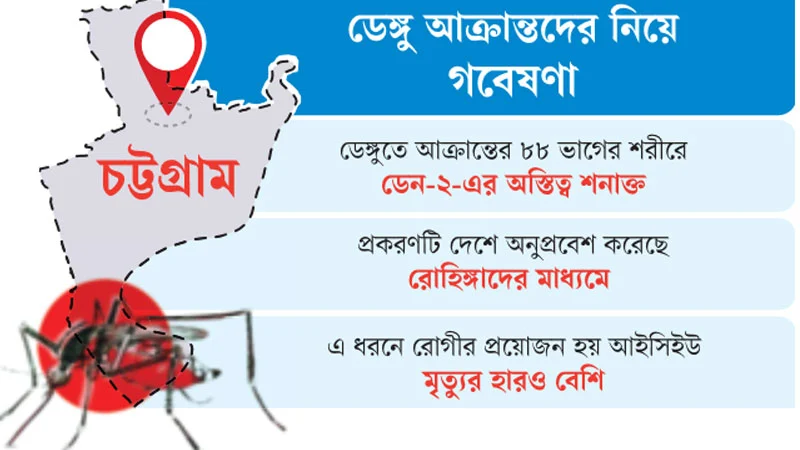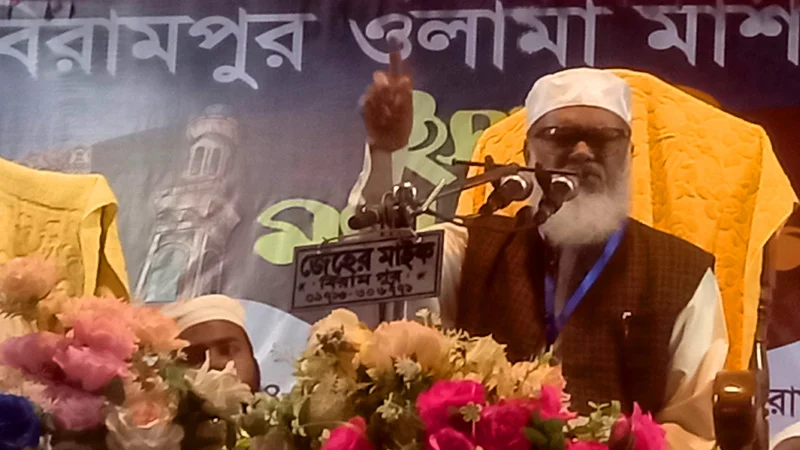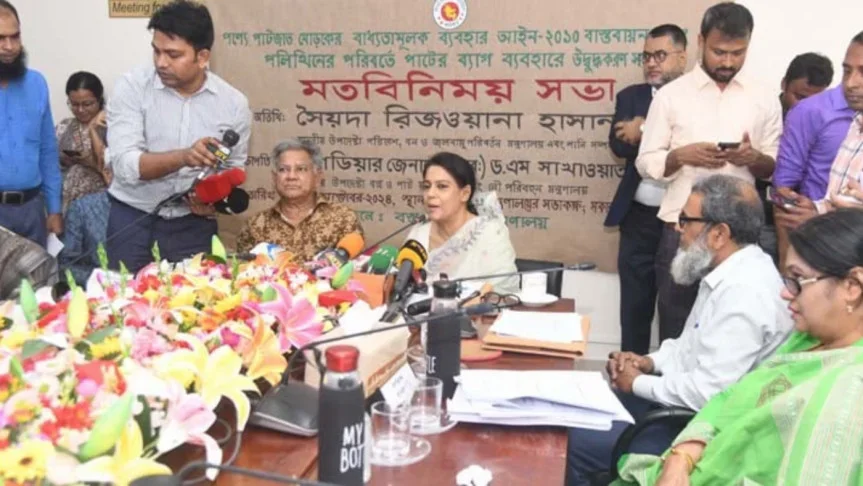Dengue is taking a terrible form in Chittagong. As days go by, the number of infected and deaths from this mosquito-borne disease is increasing. In such a situation, some terrible new information has emerged in a study jointly conducted by four organizations. A group of researchers identified the existence of Dengue-2, the most harmful type of dengue, in more than 88% of the infected people in Chittagong. The study also revealed the spread of dangerous cosmopolitan strains among these highly harmful species. Due to this, most of the residents of Chittagong are suffering from dengue. Death is also increasing. The researchers have claimed to identify the cosmopolitan type for the first time in the country.
According to researchers, it has previously been identified in India and Myanmar. They believe that the strain has infiltrated the country through tourists and Rohingya infiltrators. It is more symptomatic, requires ICU, and has a higher mortality rate. Due to its presence, researchers have expressed the fear of dengue becoming an epidemic in the future. The research has declared five areas of Chittagong City Corporation as ‘hotspots’ which are more affected by dengue. In a study conducted on more than 200 patients who were admitted to hospital with dengue this year, they found such shocking data. The research has highlighted various recommendations to avoid the dengue epidemic.
The study, under the supervision of Asperia Health Research Foundation, was conducted by ICDDR’B, Chittagong Medical College and the Department of Genetic Engineering and Biotechnology, University of Chittagong. Dr. ICDDR, B scientist. The research team led by Mustafizur Rahman is Chittagong Medical College Professor of Medicine Dr. MA Sattar, Dr. Abul Faisal, Md. Nuruddin Chowdhury, Professor of Genetic Engineering and Biotechnology Department of Chittagong University. Adnan Mannan and Director of Asperia Health Research and Development Foundation Dr. Md. Abdur Rab. The study was accepted into Germany’s Global Initiative on Sharing All Influenza Data (GISAID), an open global database of genomes, on October 5. Apart from this, the research paper has also been accepted in the European Journal of Microbiology and Immunology and the American Journal of Tropical Medicine and Hygiene. The researchers will present the issues in detail by holding a press conference in the next few weeks.
According to research data, 60 percent of dengue patients in Chittagong are residents of five areas of Chittagong City Corporation (CHSIC). Therefore, Baklia, Chowkbazar, Kotwali, Doublemooring and Bayezid Bostami in the city have been identified as hotspots. Apart from this, among the 15 upazilas of Chittagong, the most number of patients were found from Sitakunda, Hathajari, Patia, Boalkhali and Karnaphuli areas. DEN-3 type was found in 11% of affected patients in this study. By sequencing their genomes, half of the patients found the dangerous cosmopolitan variant, which the researchers believe could increase the severity and complications of dengue.
Chittagong medical expert Dr. who led the research. Md. Abdur Rab told Samakal that the cosmopolitan variation found in the study is significantly different from the variations found in other regions of the country in the past. The dangerous strain is believed to have entered the country through tourists and Rohingya intruders.
Professor Dr. Adnan Mannan said that this study was undertaken to find out which type of dengue is affecting Chittagong residents more. We found a lot of new information by sequencing the genomes of more than two hundred patients admitted to Chamek Hospital.
Dr. Abul Faisal said, the cosmopolitan variant is very harmful. The variant immobilizes various parts of the affected patient’s body in a short period of time.
The researchers believe that the genome sequence is crucial for finding the cause of dengue outbreaks and for regular monitoring. Many lives can also be saved if pre-preparedness is taken based on the results obtained.
The dengue situation is constantly becoming dire
. The dengue situation is constantly becoming dire in Chittagong. According to the information of the District Civil Surgeon’s office, in the first 18 days of this month, the existence of dengue has been detected in the body of a maximum of 828 people. Four people died at the same time. So far, 20 people have died and 2 thousand 333 people have been affected by dengue.





